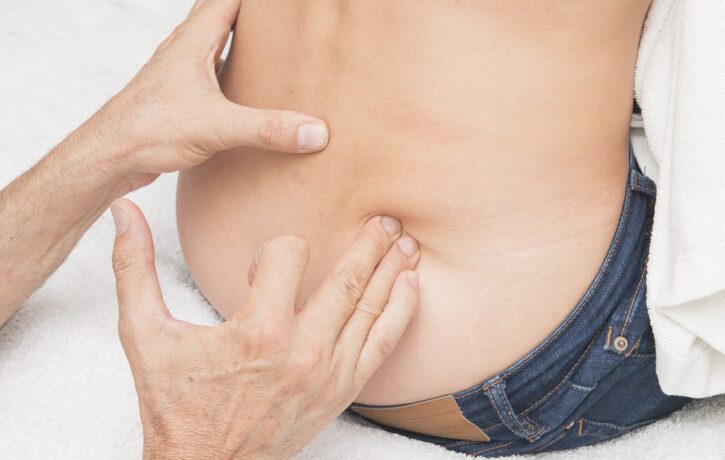in Joints & Muscles, Sports Massage
What’s a Knot and What’s Not?!

The two most common questions asked of me as a Soft Tissue Therapist, which to be fair are usually as I start the treatment during the first massage stroke either, “Can you feel the tightness?” or “Awww that’s sore is it a knot?” Both are very valid questions and can have varying degrees of complexity when answering….
Any Therapist worth their salt can feel muscle tightness. When palpating an area of the body we use our hands not just to manipulate muscles but they become our ears as well, corny I know but it is very true. There are numerous orthopaedic clinical tests to perform prior to physically touching a client but using these tools in conjunction is a very powerful way to start solving the puzzle of an individual’s injury.
My initial answer would therefore be “Yes I can feel the muscle tightness” but however that’s not all I would be looking for as I resume the treatment. I would have noted the movement of an individual as they walked through the door, as he or she sat down, movements of the head can be a key sign of pain also is there any imbalance of the body as compensating movement occurs? As I continue to palpate or massage, if the muscle is taut that could indicate a potential site of pain. But every single one of us has tight muscles although they may not necessarily cause pain. If however on the taut muscle, there is a small lump or muscle bulk, that once pressed causes my client to flinch, their body tightens or they comment on that particular spot being painful with the question of……. “Aww that’s sore is it a knot?” My reply would be “Yes that appears to be a knot!!”.
So what is a knot?? Small lumps or hardness can often be found within taut muscle giving the feeling that there is a knot, the muscle is not in fact tied but has a small area of tightly contracted tissue. With a knot being a more common term, the more officious name would be a Myofascial Trigger Point. As more research was conducted over the past decades the name for knots or trigger points has varied, to say the least, tension myositis syndrome, fibrositis, muskelharten, myofascitis and myelgelosis! All very much a mouthful hence why knots stuck I guess?!
How trigger points are formed is still a hotly debated subject due to a startling lack of recent research. There is evidence that they are formed by the micro-tearing of a muscle caused during a contraction that doesn’t heal or repair in a standard way. Very much like when you stretch a plastic bag it doesn’t go back to its original shape our muscles react in the same way but the main difference (thank goodness) is that with a bit of encouragement, they can get close to the original shape. This is mainly through movement, stretching, strengthening and massage.
Symptoms for trigger points can and are varied, simply everybody’s body is very different with all of us moving in different ways resulting in our pain thresholds varying from one level to another.
If some or most of the below feels familiar then you may have one, two or more trigger points.
- Sore spots, sensitive to pressure, mainly in a muscle
- Dull, aching and or nagging pain
- The pain is in your muscles more than your joints and feels deep
- Limbs can feel heavy and stiff
- The pain occurs in a specific area which can be felt as the epicentre
- You can’t explain exactly how the pain occurred but it is more intense after being in certain positions, performing extreme exercise or being hot/cold.
- The pain comes and goes but can last for weeks or months
- Hot showers or baths relieve symptoms briefly
- Activity and some exercise improve the symptoms
- Your pain is not strongly linked to a sudden movement such as an ankle sprain
Although common in the back and shoulder, trigger points can be found in numerous locations which require expertise when treating. Stretching, strength and conditioning, dry needling, sports massage, deep tissue massage, trigger point relief and myofascial release are all known techniques to reduce tripper points and the pain related to them.
The team at The Body Matters have the necessary knowledge and expertise to relieve pain related to trigger points using numerous techniques that are tailored to the individual’s needs.
Contact The Body Matters team on 01702 714968.
- How Pushing Too Hard Can Affect Your Health - 23rd April 2025
- Finding Hope and Comfort Through Pain - 21st March 2025
- Non-Pharmacological Solutions for Managing Pain in Parkinson’s - 19th February 2025
